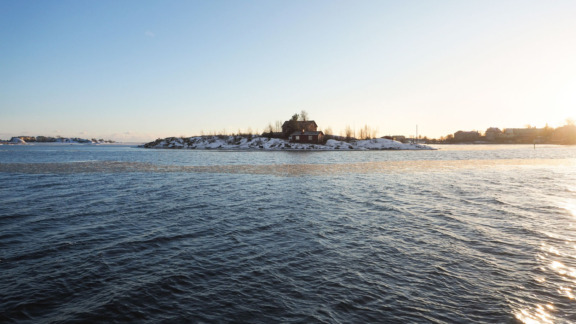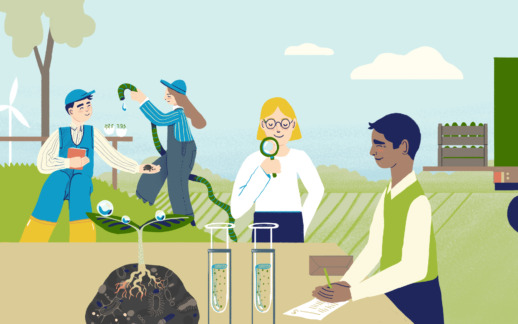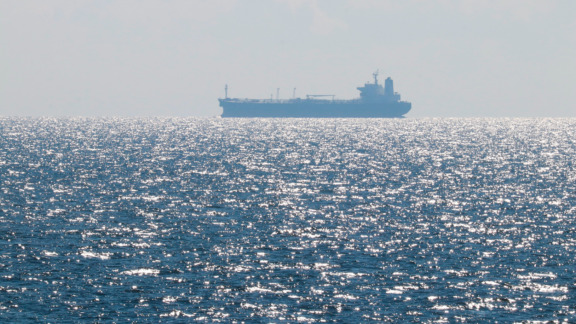State Commitments made at the Baltic Sea Action Summit in February 2010
11.07.2010 |
Belarus
• In 2003 Belarus joined The UN Convention on the Protection and Use of Transboundary Watercourses and International Lakes (Water Convention).
• In 2002 Belarus and the Russian Federation signed a bilateral Agreement on Protection and Rational Use of Transboundary Water bodies.
• National preparation procedures are completed concerning a trilateral agreement between Belarus, Russia and Lithuania on Protection of Rational Use of Waters of River Neman.
• The equivalent agreement on River Daugava is under negotiation.
• Belarus is preparing a Management System of Water Use and Protection.
• Regular monitoring of quality of river waters in Belarus is done in the framework of implementation of the National Environmental Monitoring System, including cross-border monitoring.
• Implementation of modern methods of identification of persistent organic pollutants in sampling and sediments in Belarus is based on 15 national standards prepared in compliance with international ISO standards, including more than 80 indicators of surface water.
• Belarus is highly interested in development of cooperation in wastewater treatment plant reconstruction as well as in improved treatment processes of nutrients in discharged wastewaters.
• Belarus has made amendments to the Kyoto Protocol in the framework of UN Convention on Climate Change.
Denmark
• The HELCOM Baltic Sea Action Plan is an important instrument. A major part of Denmark’s obligations is based on the ambitious Green Growth Agreement, especially in the area of farming, which Denmark is willing to share with other countries. Until 2015 the Green Growth Agreement will enable investments in the range of 13.5 billion Danish kroner equivalent to 2 billion euro.
• The Danish Ministry of Environment is currently preparing a public-private partnership meeting to enable Denmark to ratify the Ballast Water Convention by 2011. The partnership will promote know-how, networking and development.
• Within the remit of the recently adopted EU Strategy for the Baltic Sea Region, Denmark has assumed the role of coordinator for three out of fifteen priority areas. In addition, Denmark is coordinating another three priority areas in cooperation with Germany, Latvia and Finland, respectively. These include, inter alia, maritime security and clean shipping.
• Maritime surveillance is a cornerstone in properly administering the safety and security of the Baltic region. The flagship project under the EU strategy aiming at “the Baltic Sea becoming a pilot region for the integration of maritime surveillance systems” is very much supported by Denmark.
• Close cooperation with Russia on the initiatives of the EU Strategy is of particular importance.
• Bilaterally, Baltic Sea States are already working closely together to improve maritime surveillance. Negotiations between Sweden and Denmark to establish a common Vessel Traffic Service in Öresund are ongoing. Such a system enhances safety and prevents accidents, which could harm the environment.
• Last but not least, Denmark has an active role in the International Maritime Organisation (IMO) to ensure that international shipping contributes to the reduction of green house gas emissions. Denmark would like to see a binding international regulation which covers all ships regardless of flag.
Estonia
• Estonia has made a commitment to draft a Marine Environment Protection Act which will create better conditions for enhanced protection of the marine environment.
• The Act is based on an ecosystem approach and it pursues environmental protection principles.
• The new legislation will regulate different maritime activities in a manner which takes into account the sustainable development, precautionary and polluter pays principles.
• The whole range of marine environment usages will be regulated by one law giving thus an opportunity to estimate their joint impact on the marine environment.
Finland
• The President’s first commitment was to convene this Baltic Sea Action Summit, together with the Prime Minister and the Baltic Sea Action Group.
• Her second commitment was to continue promoting the Baltic Sea Action Summit process for a cleaner Baltic Sea also after the Helsinki Summit together with the business community and non-governmental organisations.
• Thirdly, the President will emphasize the implementation of the HELCOM Baltic Sea Action Plan in contacts with colleagues around the Baltic Sea.
• Fourthly, the President will encourage members of Parliament and other elected bodies as well as those participating in electoral campaigns to work for a cleaner Baltic Sea.
• Fifth, the President called upon the young generation to join the efforts and stated to be willing to give full support to their activities to make the Baltic Sea healthy again.
• Finally, the President proposed for consideration an annual Baltic Sea Day to raise awareness, to strengthen commitments and to check how the process continues.
• The Finnish Government commits itself to improve the state of the Archipelago Sea by 2020, that is, in a more ambitious timetable than in the current plans and programmes. The Archipelago Sea is a very vulnerable sea area, with heavy pollution coming from multiple sources. This is also Finland’s last remaining HELCOM hot-spot.
• Finland also aims at becoming a model region in the recycling of nutrients.
• The commitment builds on previous government objectives and programmes. The commitment involves all the stakeholders in the Archipelago Sea area.
Germany
• Germany will meet the requirements for lowering nitrogen and phosphate inputs into the Baltic Sea by implementing an area-wide fertiliser nitrate action programme in the agricultural sector.
• Germany also supports introducing an ambitious limitation of phosphate levels in detergents and cleaning agents within the EU
• Shipping companies are being rewarded for modernising their fleets and for equipping them with environmental technologies to reduce pollutants, fuel consumption and noise. Besides the beneficious effects on the sea and the coastal inhabitants, this will create room for innovations in shipping.
• In 2010, the year declared by the UN as the year of Biodiversity, Germany has designated ten new Nature 2000 marine areas, six of which are in the Baltic Sea.
• Germany will support fisheries policy to put an even greater focus on the principle of sustainability.
Latvia
• Latvia has passed regulations aimed at substitution of polyphosphates in detergents. As from 1 June 2010 all washing powders and liquids with over 5% of phosphates will be banned from the Latvian market.
• Latvia has elaborated river basin management plans to make sure that our surface waters are not contributing to the eutrophication of the Baltic Sea.
• Latvia is strongly committed to increase cross-sectoral cooperation and coordination both nationally and regionally. Effective cooperation with our neighboring countries in river basin management is of key importance.
• Cooperation in research of marine environment.
Lithuania
• To foster cooperation on international level. In the autumn of 2010, Lithuania will be submitting a resolution to the UN General Assembly addressing the issues of chemical weapons dumped into the Baltic Sea.
• The countries of the Baltic Sea should commit themselves to share information on a regular basis, and submit proposals on how to tackle the problem of dumped chemical weapons.
• Conventional explosives in the Baltic Sea. The scope of current exercises should be expanded. More ambitious projects and better use of international mechanisms should be initiated. The Flagship Projects in the frame of the EU Baltic Sea Strategy aims only at assessing the needs to clean up contaminated wrecks and chemical weapons. The President called for concrete actions to be taken in these issues.
• The President of Lithuania will initiate discussions with other Baltic country leaders about possible projects on bilateral level on the chemical and conventional weapons dumped into the Baltic Sea.
• In June 2010, Lithuania will host the Summit of the Council of the Baltic Sea States and the Baltic Development Forum. Environmental issues will be high on the agenda of both events.
Norway
• Norway will take the ideas and points of action of the Baltic Sea Action Summit into CBSS´s work over the next year.
• Other priorities for Norway will be a greener maritime policy, climate change, renewable energy, the environment, labour market questions and social welfare.
• In the coming year Norway will chair expert groups on sustainable development and on an integrated maritime policy for the whole Baltic Sea.
• Norway will also chair the energy cooperation in the Baltic Sea Region.
Poland
• By 2015, Poland will eliminate almost 100% of biodegradable pollution load and achieve at least a 75% reduction in nutrients in municipal waste throughout the country. Achieving the aim will translate into building 30,000 km of sewage system, building of 177 sewage treatment plants and modernising further 569 plants within the next five years, at the cost of EUR 8 billion.
• Poland will introduce restrictions on the use of polyphosphates in laundry detergents for consumers: Max. 0.5% P weight/weight will be allowed after 2014.
Russia
• Russia will strive to reduce waste and air and water pollution by more than 1% per year.
• Regarding nature reserve areas and national parks, Russia will increase these areas by 11 million hectares by 2012. This means a 20% increase of area by 2012, compared to today´s 55 million hectares.
• As part of this program, Russia is planning to pass a decision establishing the Ingermanland Nature Reserve in 2010, which will contain several islands in the Gulf of Finland. This is our real contribution to the fulfillment of our collective commitments to protect the Baltic Sea.
• Russia will continue to repair and develop large-scale water supply and removal systems in the Baltic area. These measures will allow a level of wastewater purification up to 98% in St Petersburg and its suburbs by 2015, as stipulated by HELCOM requirements. The work will continue until all requirements are met.
• Similar measures are planned for the Leningrad Region and reconstruction of almost 200 water treatment plants are planned for the next 10 years.
• For the Kaliningrad Region, a targeted program of development, providing for far-reaching steps towards protecting the Baltic environment, is being carried out.
• All issues regarding the participation of international organisations in funding the reconstruction of the system of water supply and environmental protection in the Kaliningrad Region have recently been resolved. The Russian government has made all the required decisions on these projects’ funding.
Sweden
• Sweden increases the contribution to the NIB/NEFCO Technical Assistance Fund from 4.5 to 9 million euros, available to countries in the region to speed up the activities of the Baltic Sea Action Plan.
• Sweden is leading the work on better sewage treatment, on reducing phosphates in detergents and on the priority area of hazardous substances.
• The present government has allocated 100 million euro to actions for a sustainable marine environment. Concrete actions will follow, such as:
• Further agricultural measures,
• Mussel farms and oxygenation of sea bottoms,
• Extending the ban on phosphates to also include detergents for dishwashers.



